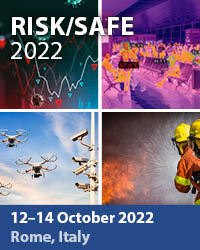Spatio-temporal Modelling Of Wildfires In Catalonia, Spain, 1994–2008, Through Log Gaussian Cox Processes
Price
Free (open access)
Transaction
Volume
158
Pages
11
Page Range
39 - 49
Published
2012
Size
799 kb
Paper DOI
10.2495/FIVA120041
Copyright
WIT Press
Author(s)
L. Serra, M. Saez, D. Varga, A. Tobías, P. Juan & J. Mateu
Abstract
Forest fire management is not only an emergency task, the preventive task could be even more important, being better to avoid the risk of a forest fire ignition before it starts or minimize its hazard, rather than later trying to extinguish it. If we associate wildfires with their spatial coordinates, along with other variables, it is possible to identify them by means of a spatio-temporal stochastic process. Spatio-temporal clustering of wildfires could indicate the presence of risk factors. In fact, what is usually of interest is to assess their dependence on covariates. Two were the objectives in this paper. Firstly, to evaluate how the extent of clustering in wildfires differs across marks. Secondly, to analyze the influence of covariates on trends in the intensity of wildfire locations. We analyzed the spatio-temporal patterns produced by wildfire incidences in Catalonia, located in the north-east of the Iberian Peninsula. The total number of fires recorded in the studied area, during the period 1994–2008, was 10,783. In addition to the locations of the fire centroids, several marks and spatial covariates were considered. We specified spatio-temporal log-Gaussian Cox Modelling, Monitoring and Management of
Keywords
wildfire, spatio-temporal point processes, marks, covariates, log- Gaussian Cox models, GMRF, INLA





